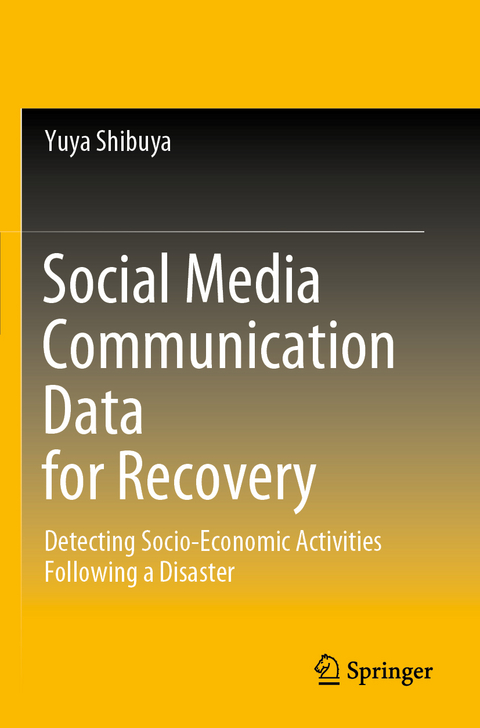
Social Media Communication Data for Recovery
Springer Verlag, Singapore
978-981-15-0827-1 (ISBN)
Yuya Shibuya, Project Assistant Professor, The Graduate School of Interdisciplinary Information Studies, The University of Tokyo, Japan.
Declaration of Authorship.- Abstract.- Acknowledgements.- Introduction and FrameworkIntroduction.- Concept of “People as Sensors”.- Methodology.- Empirical Studies of Socio-Economic Activities After the Great East Japan Earthquake and Tsunami .- The Excess Demand for Used Cars The Excess Demand for Housing.- People As Sensors for Socio-Economic Recovery Activities.- Facebook Page Topics and the Excess Demand for Used Cars.- Data.- Topics on Twitter and the Excess Demand for Used Cars.- Public Sentiment and the Excess Demand for Used Cars.- Social Media Communication and the Excess Demand for Houses.- A Case Study of Hurricane Sandy.- The Excess Demand for Housing after Sandy.- Conclusion
| Erscheinungsdatum | 16.01.2021 |
|---|---|
| Zusatzinfo | 28 Illustrations, color; 28 Illustrations, black and white; XIII, 228 p. 56 illus., 28 illus. in color. |
| Verlagsort | Singapore |
| Sprache | englisch |
| Maße | 155 x 235 mm |
| Themenwelt | Mathematik / Informatik ► Informatik ► Datenbanken |
| Mathematik / Informatik ► Mathematik ► Finanz- / Wirtschaftsmathematik | |
| Wirtschaft ► Betriebswirtschaft / Management | |
| Wirtschaft ► Volkswirtschaftslehre ► Ökonometrie | |
| ISBN-10 | 981-15-0827-5 / 9811508275 |
| ISBN-13 | 978-981-15-0827-1 / 9789811508271 |
| Zustand | Neuware |
| Informationen gemäß Produktsicherheitsverordnung (GPSR) | |
| Haben Sie eine Frage zum Produkt? |
aus dem Bereich


